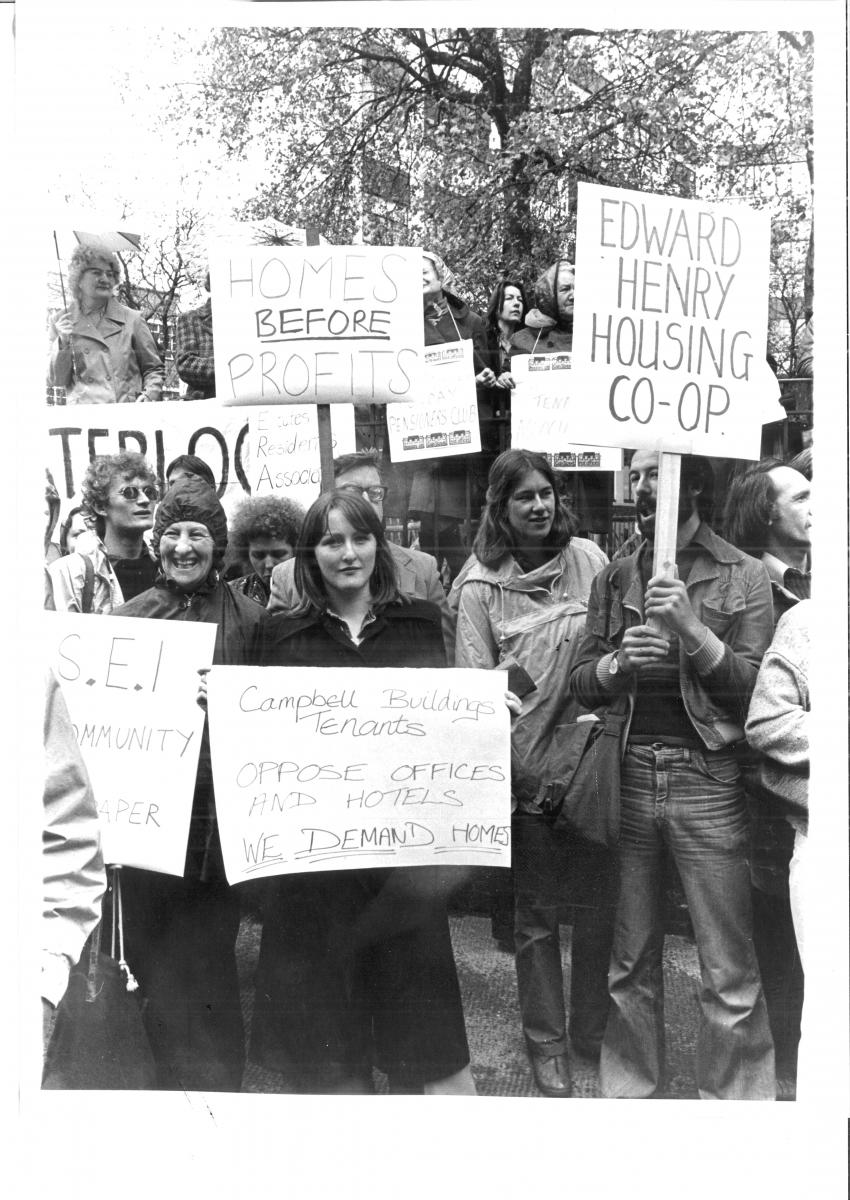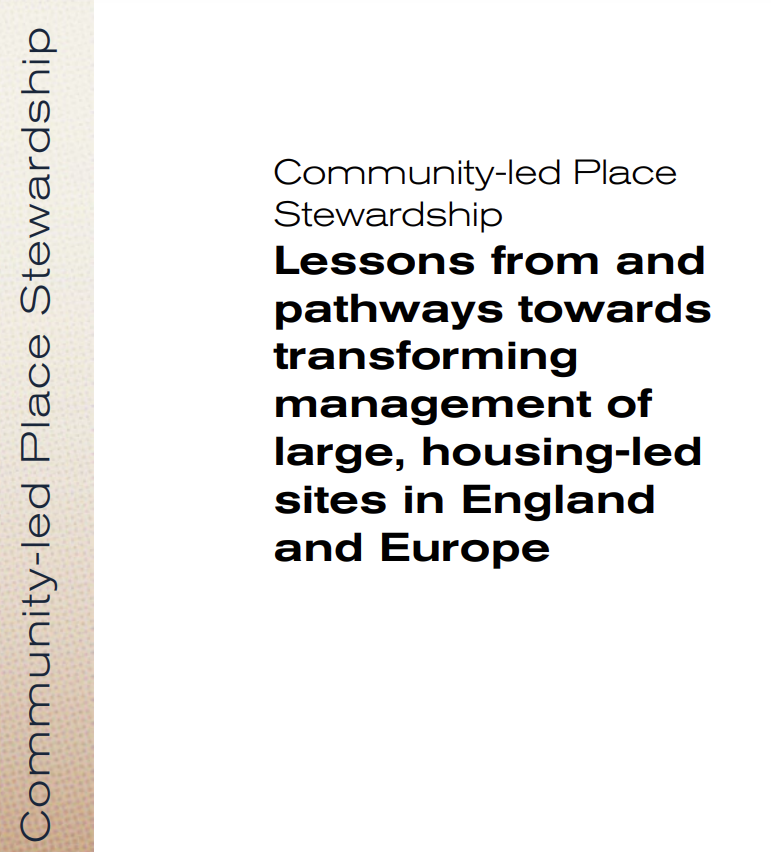
Report on Transforming Management of Large Housing-led Sites in England and Europe
New Report: Rethinking Housing Development Through Community-Led Place Stewardship Developed with the Community Land Trust Network (England & Wales) and Dark Matter Labs, this research explores community-led place stewardship as a transformative alternative to private management companies in large housing developments. Key insights: 87% of large UK housing developments rely on private management companies, often criticized for poor value and accountability. Community-led stewardship via community land trusts offers a proven, not-for-profit alternative that reduces opposition to large-scale house building. Includes 5 UK case studies, practical scenarios for councils and developers, and lessons from Europe. Read More

Confederation of Co-operative Housing Celebrates 30 Years of Advocacy and Progress in the UK
The anniversary publication, The Confederation of Co-operative Housing: 30 Years of Hope, Inspiration and Belief, reflects on CCH’s journey from its inception in the early 1990s in response to shifting government policies. The report highlights CCH’s resilience and evolution, adapting to both support its members and advocate for cooperative housing models as a credible alternative to traditional housing frameworks.Read More
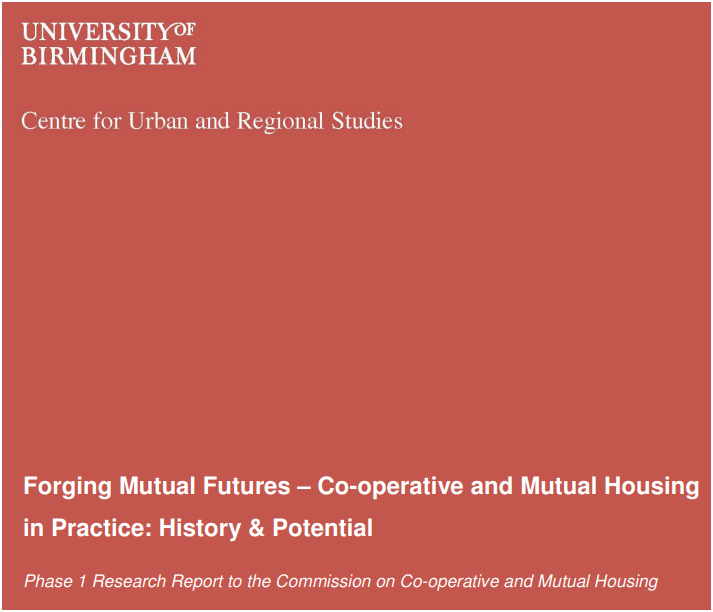
Forging Mutual Futures – Co-operative and Mutual Housing in Practice: History & Potential
This study by the Centre for Urban & Regional Studies explores the potential of housing cooperatives and mutual models to address these issues in the UK. It reviews past cooperative housing efforts, identifies factors affecting their success and sustainability, and assesses the potential of expanding these models to provide affordable, sustainable housing solutions.Read More
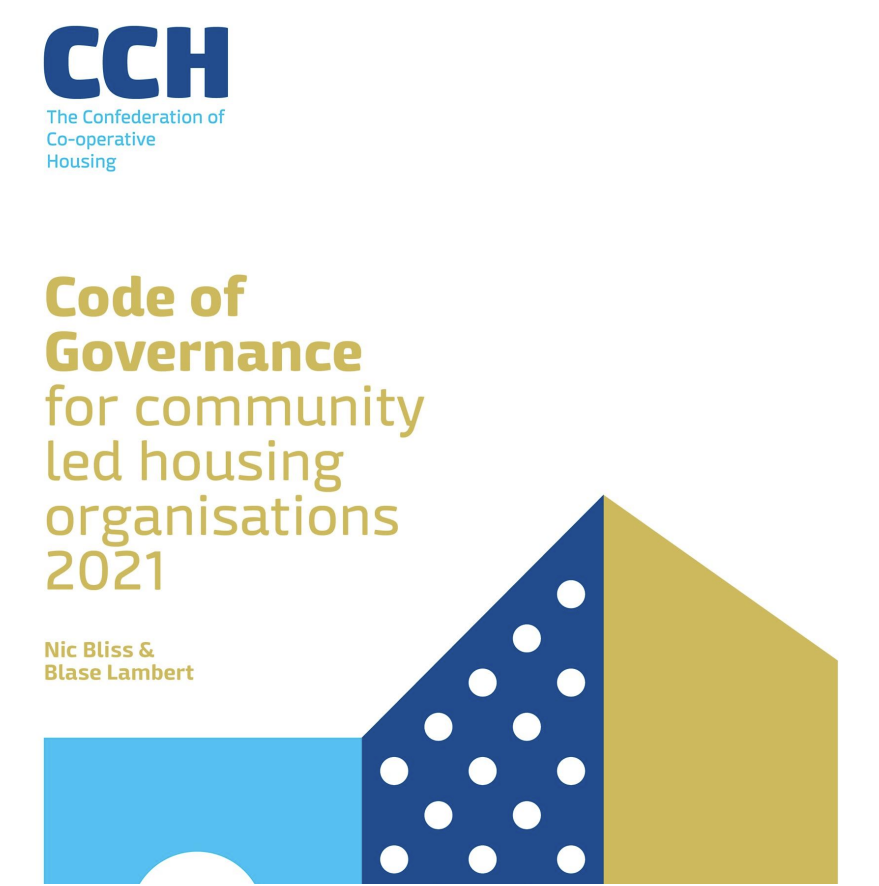
Code of Governance for Community-led Housing (UK-2021)
A Code of Governance outlines a framework for an organization to govern itself effectively. It involves defining and reviewing the purpose, mission, vision, values, structures, standards, policies, strategies, financial arrangements, and potential risks.Read More
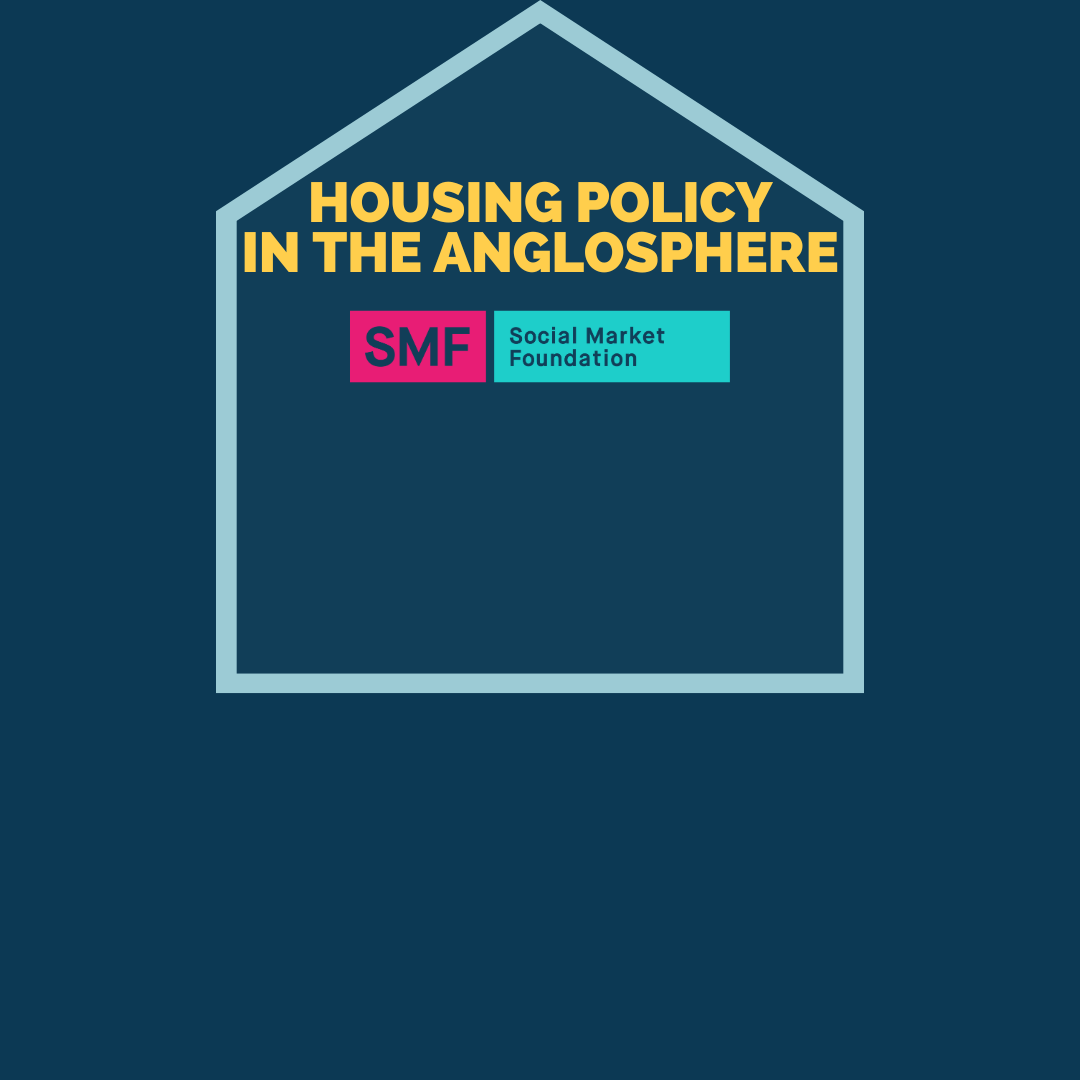
Housing Policy in the Anglosphere: Social Market Foundation Report Series on Housing
Five reports investigate housing policy from other countries for solutions to the UK’s housing shortage. Each of the five reports is a comparative study of housing policy internationally with a particular focus on Australia, Canada, Ireland and New Zealand.Read More
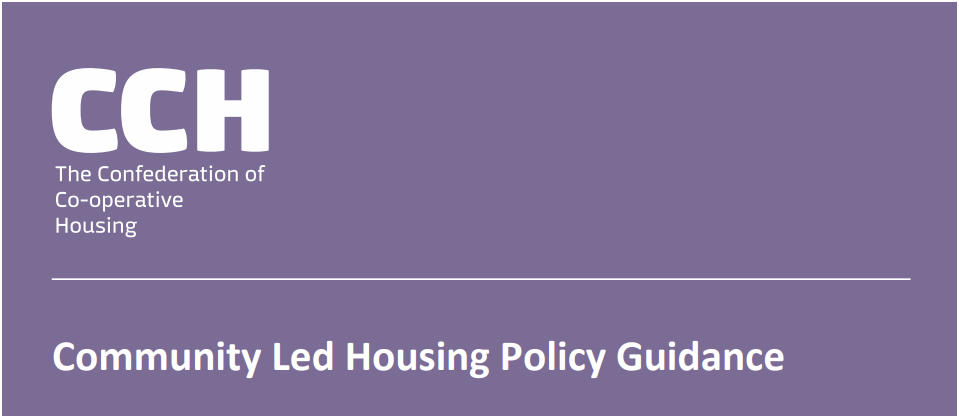
CLH Training – Governance in Community-led Housing
The policy guidance covers governance, finance, membership, housing management, repairs and maintenance, and agency and employee management. It includes information relevant to different tenures and is aimed at community-led housing organizations.Read More

Brighton & Hove Community Land Trust Resources
The Brighton & Hove Community Land Trust (BHCLT) resources page hosts a variety of materials on community-led housing, cooperative models, and land trusts. It provides case studies, guides, policy documents, and research reports to support individuals and groups interested in sustainable and affordable housing solutions in the Brighton & Hove area. Read More

Capturing the Customer Voice
Resident satisfaction surveys continue to be an essential tool used to shape services, improve ways of working and enhance the customer experience or residents across the housing sector. In 2011, HouseMark launched what is now the ...Read More

From Conflict to Cooperation
These five booklets cover basic communication concepts, making meetings more effective, dealing with conflict, improving communication, and the vital role of the board.Read More

Community Land Trusts in England: A Study of an Emerging Typology
The aim of this masters thesis by Dave Smith is to establish an emerging, consistent typology that could be termed an ‘English Community Land Trust’ – one distinct from that of other affordable housing providers; congruen ...Read More

How Scottish Housing Coops Build Communities
A Scottish study, published in 2019, contains case studies demonstrating how housing co-ops in Glasgow and Edinburgh have delivered benefits for Scottish communities and calls on the Scottish government to encourage more of them. The sector is still very limited, with just 11 registered and several more unregistered housing co-ops in Scotland, compared with 685 across the UK.Read More

Rochdale Pioneers and the Coop Principles
This essay does not pretend to be a work of original research or even of comprehensive synthesis and interpretation. It does aim to pull together selected points of view about Rochdale to give readers a convenient point of entry into some complex issues.Read More
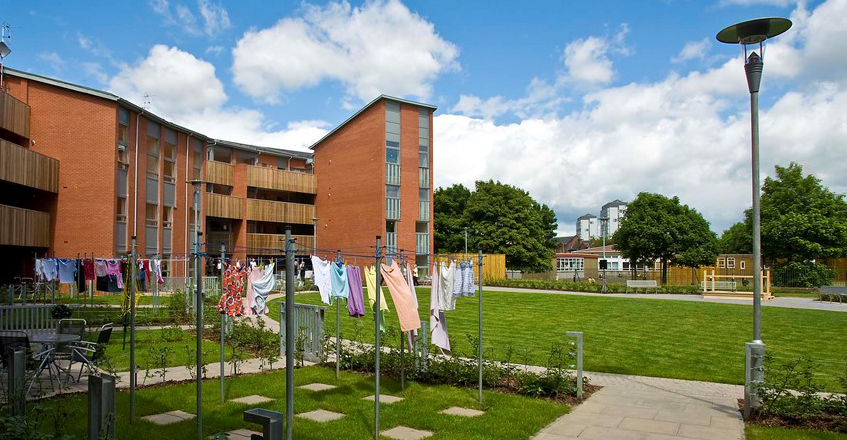
Co-operative councils share best practices of working with local communities
Find out how local councils in the UK are co-operating with communities to generate more affordable housing and make use of government funding for community-led housing in these various case studies. ...Read More

Building homes, creating communities, changing lives: A strategy for scaling up and maximising impact 2017-2021
Wales needs more homes, particularly homes that are affordable for people on low to middle incomes. Welsh Government has committed to delivering 20,000 affordable homes during the current Welsh Government term. Building on rich tr ...Read More

Community-led Housing: a Key Role for Local Authorities
The 'Community-led Housing: a key Role for Local Authorities' report gives an introduction to community-led housing in the UK and how it comes into being, including the different types of funding available. It sets out how CLH can help local authorities achieve their strategic priorities and gives examples of how authorities can enable or support it. It also provides sources of further guidance and good practice. The report is supported by 12 case studies from England, Scotland and Wales.Read More

Mutuality & accountability in the housing association sector
Mutuality & accountability in the housing association sector is the report of the Mutual Governance:Mutual Outcomes project, set up to explore the value of mutuality in mutual housing associations in the UK. Mutual housing associa ...Read More

Best Practices and Strategies among the Leading Affordable Housing Developers and Owners
British-American Peer-to-Peer Exchange: Sharing Best Practices and Strategies among the Leading Affordable Housing Developers and Owners The exchange, which was sponsored by the Housing Partnership Network (US) and the National Ho ...Read More

TEDx – Ecological Co-housing at LILAC Leeds, UK by Paul Chatterton
Paul Chatterton teaches in the School of Geography at the University of Leeds, with interests in campaigning techniques, urban social movements, urban development and how city centres are being privatised and corporatised, as we ...Read More

Financing Co-operative and Mutual Housing
This report examines the current financing of social housing and contrasts it with other European countries (chapter 3), highlights some key issues that may affect the current financing model (chapter 4), outlines existing and new ...Read More

What Is Co-operative and Mutual Housing?
No two co-operative and mutual housing schemes are the same. Part of what makes it successful is its ability to enable local people to develop housing in the way that is right for them.Read More
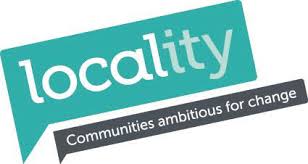
Community-led Housing Toolkit 1 & 2 and Key Resources Kit
Community-led Housing projects are run by individual community groups determined to build the types of homes that local people need and want. These projects are aimed at solving local problems through local control. Community-led ...Read More

Local housing, community living: prospects for scaling up and scaling out community-led housing
This report by the Smith Institute highlights how community-led housing schemes in the UK have successfully met the needs and aspirations of local groups and communities. The research reveals that developments are innovative, have ...Read More

1,001 co-operative and community-led homes: the housing revolution starts here
This directory of cooperative and community-led housing is an impressive and very diverse list put together by CHI member Confederation of Co-operative Housing (CCH). Read how schemes were developed, where they got their funding, who they worked with, who lives in them and how they live there. Read More

Guide to Developing New Co-operative Homes in the UK
New-Co-operative-and-Community-led-Homes-2017 is a basic guide for community groups, local authorities, housing associations, housing co-operatives and others in the UK who are interested in exploring the development of new co-operative and community-led homes.Read More

Research into the potential demand for co-operative housing in Wales
This report presents the findings on the public perceptions of co-operative housing in Wales. For those who want to learn more about the sector it sets the scene, provides cases studies and gives a set of practical recommendations to take this forward across Wales.Read More

LILAC – Mutual Home Ownership Community in Leeds, England
LILAC, a housing co-op located in Leeds, England is a good case study not only of a different model of co-op housing as well as sustainable technology and practices. David Rodgers, former president of CHI and former London Borough ...Read More

Have your say: the Cooperative Identity, from a housing perspective
The Cooperative Identity — the shared values and principles that unite cooperatives worldwide — is being revisited for the first time in decades. The International Cooperative Alliance (ICA) has released Discussion Draft 2 of ...Read More

Research and Analysis Initiative of the International Cooperative Alliance – The Law on Cooperative Housing
The International Legal Research and Analysis Initiative (ILRAI) of the International Cooperative Alliance, coordinated by Cooperative Housing International, provides the first comparative legal analysis of cooperative housing fra ...Read More

Profils d’un mouvement : Les coopératives d’habitation dans le monde
L'habitat coopératif offre des logements abordables à long terme, gérés par les résidents, avec des avantages sociaux, économiques et environnementaux avérés. Malgré son impact mondial, ce secteur reste méconnu.Read More

Public Cooperative Housing Policies: An International Perspective
Explore public policies supporting cooperative housing worldwide in this comprehensive report. Discover how governments and cooperatives collaborate to create sustainable and affordable housing solutions globally.Read More

Financing Co-operative and Mutual Housing
The Commission's final report on Cooperative and Mutual Housing (Bringing Democracy Home) highlighted the need for consideration of the role that cooperative and mutual housing could play in the national housing strategy. The Fina ...Read More

Logement abordable : profils de cinq villes métropolitaines
Par cette publication, nous souhaitons ouvrir le débat sur le logement en tant que droit fondamental et enjeu métropolitain, en mettant en lumière l’expérience de grandes métropoles et dans l’espoir d’inspirer des idées nouvelles pour aborder cet enjeu absolument fondamental de l’urbanisation moderne.Read More

Building Strong Development Cooperation: Partnership Opportunities between Cooperatives and the EU
In 2000, United Nations (UN) member states recognised the need to build global partnerships for development and the exchange of expertise as one of the Millennium Development Goals. Across the international development field, part ...Read More
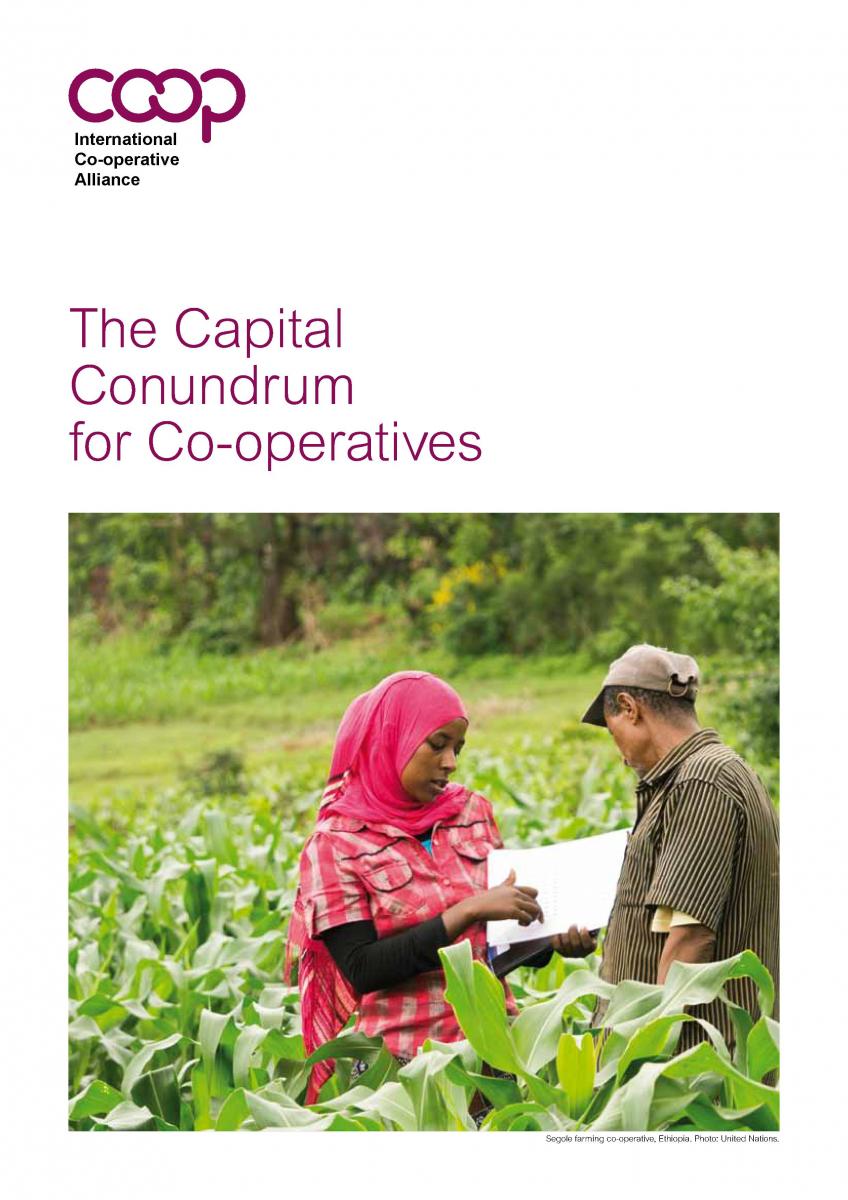
Raising Capital: The Capital Conundrum for Co-operatives
New report: The Capital Conundrum for Co-operatives "The Capital Conundrum for Co-operatives", a new report released by the Alliance’s Blue Ribbon Commission explores ideas and options available to co-operatives that need suitab ...Read More

Financing Housing Co-operatives in a Credit Crunch
Financing the development of housing co-operatives is a challenge and more so in time of financial restrictions and uncertainty. CHI members discussed the issue during a seminar held in November 2009 in Geneva. Presentations w ...Read More

What’s new in Sustainable Forest Management?
The Forest Products Annual Market Review 2013 reports that the development of new refinement processes has led to the production of new and more affordable wood based products such as cross-laminated timber (CLT). The report sta ...Read More

The Guidance Notes on the Co-operative Principles
Updated Guidance Notes on the Co-operative Principles, edited by David Rodgers, former President of Co-operative Housing InternationalRead More

Promoting Cooperatives – International Labour Organization (ILO) Recommendation 193 on the Promotion of Cooperatives
The ILO views cooperatives as important in improving the living and working conditions of women and men globally as well as making essential infrastructure and services available even in areas neglected by the state and investor-driven enterprises. Cooperatives have a proven record of creating and sustaining employment – they provide over 100 million jobs today; they advance the ILO’s Global Employment Agenda and contribute to promoting decent work.Read More

Profiles of a Movement: Co-operative Housing around the World – Volume One
Cooperative housing offers long-term, affordable homes governed by residents, with proven social, economic, and environmental benefits. Despite its global impact, the sector remains under-recognized.Read More
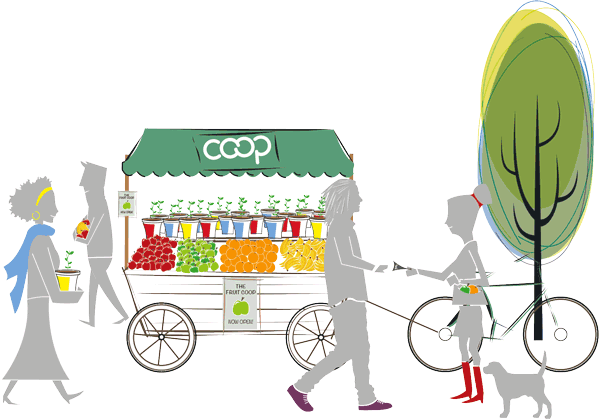
Students and Housing Cooperatives
Student housing cooperatives have become very popular in the USA and many of these housing co-operatives are members of organizations such as NASCO. Unlike a resident who acquires shares at market rates to earn the right to occupy ...Read More

Good Governance Charter for Housing Co-operatives
The Good Governance Charter for Housing Co-operatives was launched at the ICA Housing Plenary in Manchester in November 2012.It has three parts:A 10-point set of good governance practicesAn interpretive statement for each good p ...Read More
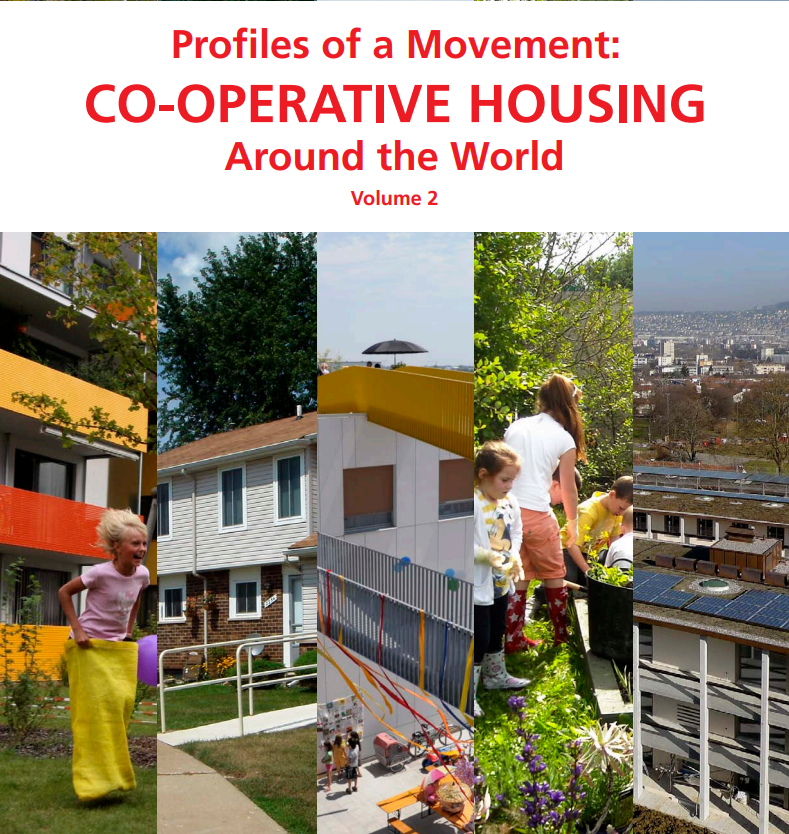
Profiles of a Movement: Co-operative Housing around the World – Volume Two
This second volume of Housing Co-operative Profiles focuses on African countries, showcasing the ingenuity and commitment of cooperators working under difficult conditions. It offers insights into the legal, financial, and historical contexts of housing co-ops, aiming to inspire broader adoption of the model as a solution to the global housing crisis.Read More
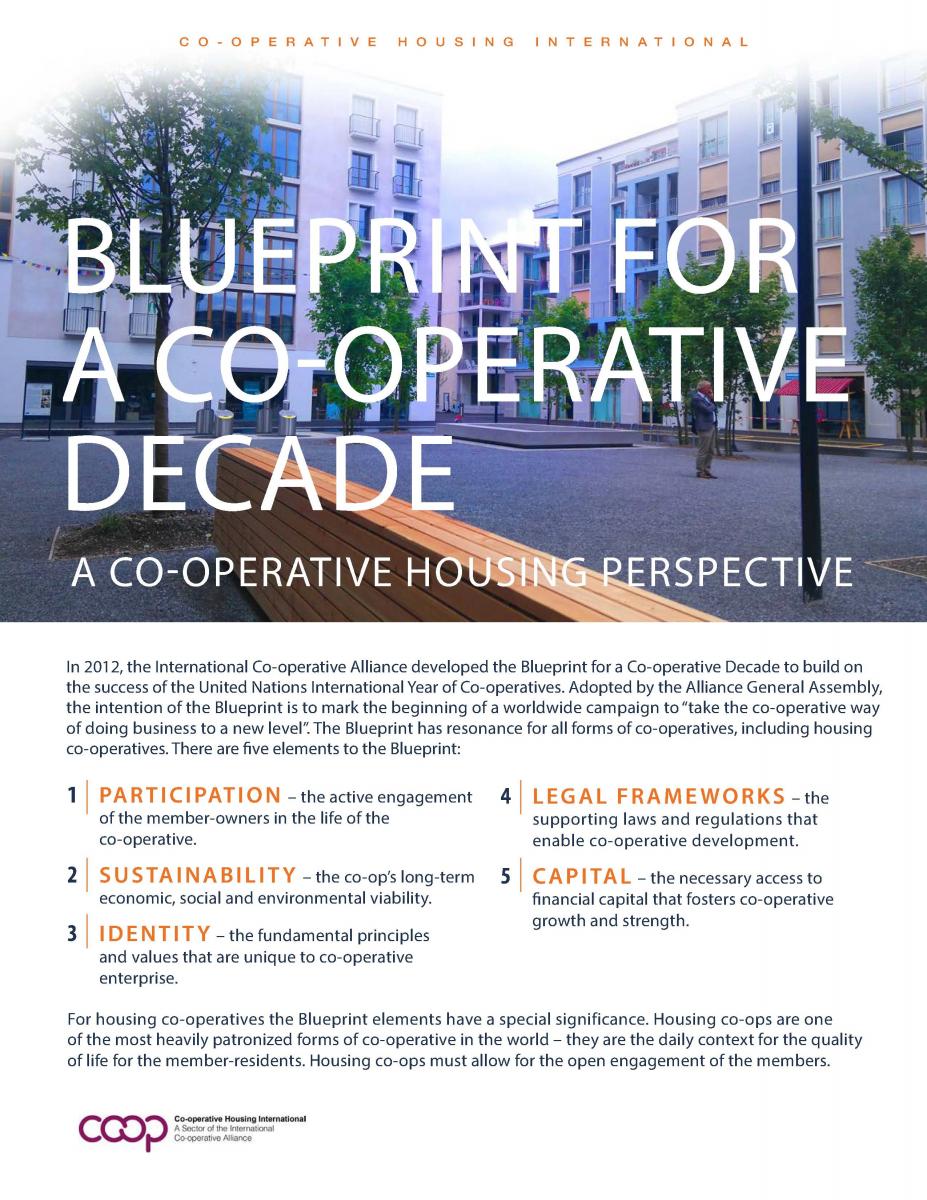
The Blueprint for a Co-operative Decade and its Special Application to the Housing Sector
The Blueprint for a Co-operative Decade is a worldwide campaign to “take the co-operative way of doing business to a new level”. The five key elements of the Blueprint are participation, sustainability, identity, legal frameworks and capital. The Blueprint is particularly relevant to co-operative housing and the Blueprint interpretation for co-operative housing below explains how.Read More



